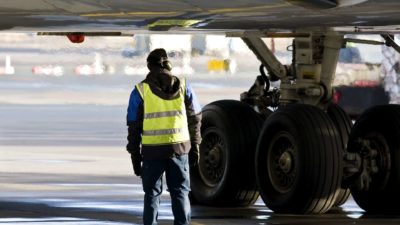Qantas Airways Limited (ASX: QAN) stock has risen around 20% since the end of February 2024, as shown on the chart below. The ASX travel share has had a rough 12 months, but the future looks more positive.
The company has made some moves in the last few months to win back the trust of passengers after its ticket-selling misdemeanours. For example, Qantas recently expanded its frequent flyer program by adding 20 million more reward seats.
There are (at least) three things that investors should know about Qantas stock, which could make it a compelling investment.
Qantas loyalty division is highly profitable
Many people may think that flights are the only important part of the business. The Qantas loyalty division is becoming increasingly profitable and a bigger contributor to the company's overall earnings.
In the first half of FY24, Qantas made a total underlying profit before tax of $1.25 billion, down 13%.
It made HY24 underlying earnings before interest and tax (EBIT) in the Qantas domestic division of $641 million, $322 million of underlying EBIT in Qantas international (including freight), $325 million of underlying EBIT in Jetstar Group and $270 million of underlying EBIT in the Qantas Loyalty division. The HY24 Qantas Loyalty underlying EBIT rose by 23% year over year.
Qantas aims to reach $800 million to $1 billion of underlying EBIT by FY30. This segment could contribute to the ASX travel share's overall profitability at a greater level in the coming years.
Share buyback
A share buyback is one of the most useful things a company can do to increase the value of shares for shareholders.
The ASX travel share announced in the HY24 result that it was increasing its on-market share buyback by up to $400 million.
Buying back shares means the company's value is being shared between a smaller number of shares, increasing the underlying value in per-share terms. This helps shareholder-related metrics such as the return on equity (ROE) and earnings per share (EPS). In theory, it should help push the Qantas stock price higher as the share buyback continues.
Very cheap valuation
Airlines usually don't trade on a high price/earnings (P/E) ratio, but the profit they make is just as valuable as the profit dollars made by an ASX tech share, ASX retail share or ASX bank share.
In the FY24 first-half result, the business made statutory net profit after tax (NPAT) of $869 million, or statutory EPS of 52 cents.
The broker UBS has estimated Qantas could generate EPS of 91 cents in FY24, 99 cents in FY27 and $1.11 in FY28. According to those projections, the Qantas stock price is valued at 6.7x FY24's estimated earnings, 6.2x FY27's estimated earnings and 5.5x FY28's estimated earnings.
In three years from now, Qantas' profit could be substantially higher, so it looks to me to be at a very appealing level now.








